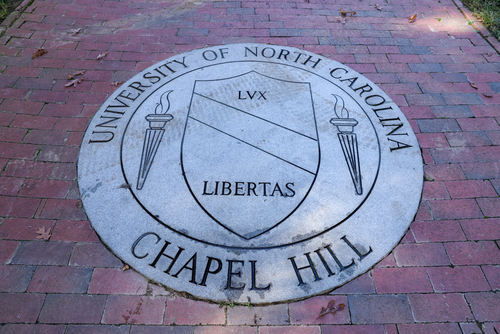WASHINGTON – Today, the U.S. Supreme Court undermined equal opportunity in higher education by holding that the affirmative action plans of Harvard College and the University of North Carolina Chapel Hill violate the Equal Protection Clause.
In Students for Fair Admissions v. University of North Carolina and Students for Fair Admissions v. Harvard College, the Lawyers’ Committee for Civil Rights Under Law along with co-counsel represented multiracial groups of students and alumni from the University of North Carolina at Chapel Hill and Harvard. The Lawyers’ Committee is the only civil rights organization that litigated both cases since their inception and was also the only organization that presented oral argument in the Supreme Court when the cases were argued.
“Through a tortured interpretation of legal precedent, history, and current-day reality, today’s decision threatens to make higher education less accessible, less equitable, and less attainable for students of color, making it more difficult for them to have a fair shot at getting the quality education they deserve,” said Damon Hewitt, President and Executive Director of the Lawyers’ Committee for Civil Rights Under Law. “This Court is clearly on the wrong side of history. But we will not be deterred. And we will not let this ruling erase our young people’s identities or their dreams. We will continue to fight for an equitable education system and we call upon every institution of higher education to join us by doing everything in their power to create new pathways to access.”
By a 6-3 vote, the Court held that the UNC Chapel Hill and Harvard College affirmative action programs, which consider race as one factor of many as part of a holistic admissions process, violated the Equal Protection Clause. Chief Justice Roberts’ majority opinion did not explicitly overrule the Court’s affirmative action precedents, which the Harvard and UNC were modeled on, or state that race can never be considered as a factor in admissions. But at the same time, the decision pares back the circumstances in which race can be used in higher education admissions. The decision does make it clear that universities can still consider “an applicant’s discussion of how race affected his or her life, be it through discrimination, inspiration, or otherwise.” Justices Sotomayor and Jackson filed separate dissenting opinions. Notably, Justice Sotomayor cited the testimony of several of the Lawyers’ Committee’s student and alumni clients in her dissent about how race was an indispensable part of their identity in stating that universities should be able to consider race as one of many factors in admissions.
“Race-conscious policies were created to mitigate centuries of wrongdoings against people of color and to bring students of all races and backgrounds together. It is one of the greatest ironies that the Court has undermined such policies by holding UNC’s and Harvard’s programs unlawful,” said David Hinojosa, litigator before the Supreme Court and Director of the Educational Opportunities Project. “But we will not be deterred and allow this miscarriage of justice to define our future. The majority of this country are on the side of justice and ensuring opportunity for all. We will pursue every avenue available to ensure our colleges remain open to all and reflect campuses where students’ identities are celebrated not shunned.”
“If the Supreme Court will not allow even modest race-conscious measures in admissions, then it is all the more urgent for colleges and universities to eradicate all of the unfair barriers that systematically disadvantage applicants of color in the admissions process,” said Oren Sellstrom, Litigation Director at Lawyers for Civil Rights, one of the groups representing students of color who testified in the case in support of affirmative action. “Admissions preferences for children of wealthy donors and for children of alumni, for example, overwhelmingly benefit white applicants at many institutions of higher learning, and must be stopped immediately.”
“The decision today is deeply disappointing. The use of race as just one of over forty carefully considered factors was crucial to UNC’s continued pursuit of the educational benefits of racial and ethnic diversity. UNC’s history of racial subjugation continues to impact students’ experiences and this decision hurts efforts to create an inclusive and supportive environment for all students,” said Sarah Laws, Leslie J. Winner Public Interest and Civil Rights Fellow at the North Carolina Justice Center.
“We are outraged that the Supreme Court has ignored nearly 50 years of legal precedent in favor of supporting racial inequity that harms all people of color. But Advancing Justice – AAJC is more committed than ever to ensuring equal opportunity for our children,” said John C. Yang, president and executive director, Asian Americans Advancing Justice – AAJC. “We will not let this court decision keep us from pushing colleges and universities and others to keep this ruling from undermining the progress made toward educating our future multiracial, talented leaders who deserve every opportunity to reach their highest potential on campuses that reflect the diversity of America. we will not stop working for ensuring equitable access to educational opportunities for Black, Latino, and marginalized Asian Americans.”
###
About the Lawyers’ Committee for Civil Rights Under Law – The Lawyers’ Committee for Civil Rights Under Law is a nonpartisan, nonprofit organization, formed in 1963 at the request of President John F. Kennedy to mobilize the nation’s leading lawyers as agents for change in the Civil Rights Movement. Today, the Lawyers’ Committee uses legal advocacy to achieve racial justice, fighting inside and outside the courts to ensure that Black people and other people of color have the voice, opportunity, and power to make the promises of our democracy real. For more information, please visit https://lawyerscommittee.org


